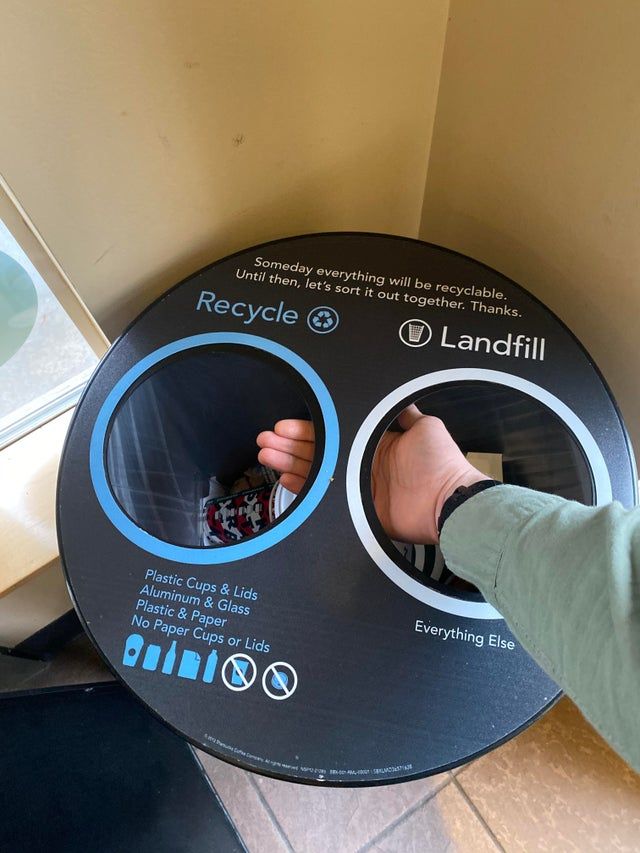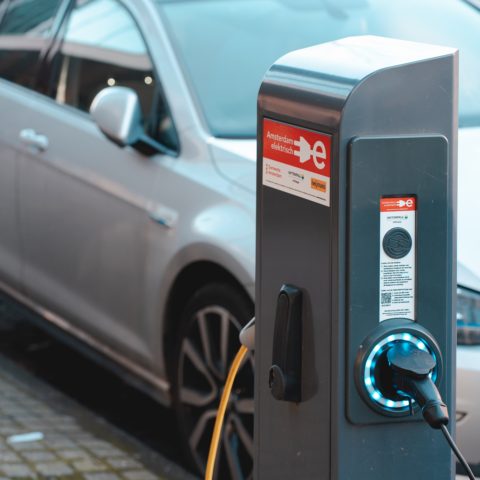By Daniel Klein
Quick–if I asked you to think of something you do to help the environment, what is the first thing that pops in your head? It is very likely that you thought about recycling. Almost everyone in our society recycles. It commands significant amounts of institutional support and it leaves people with a sense that they are doing something to fight environmental harm. For many activists, recycling serves as the Platonic ideal of eco-conscious behaviors.
But does recycling—specifically, recycling plastic—actually help?
While public awareness campaigns, advertisements, and green logos on consumer products suggest otherwise, recycling–or more appropriately, attempting to recycle–plastic may prove no better than simply throwing it in the trash. Furthermore, the idea that recycling is the solution to the problem of never-decomposing plastic is a microcosm of the environmental doctrine that dominates current environmental discourse: ecomodernism. Thus, the failures of recycling characterize the greater shortcomings of ecomodernism.
From Bin to Bangladesh
When you place a plastic bottle in the recycling bin, what happens? Common belief says that once your recycling is collected, that bottle goes to a facility that then somehow turns all of society’s plastic waste into materials usable in future products, keeping waste out of our landfills. However, this idealized and simplistic process is divorced from reality.
Most plastics we use cannot even be recycled. While there are seven different types of plastics, only two, PET and HDPE, are truly recyclable. The other four variants may make their ways to recycling facilities, but they are almost never recycled due to high processing costs. Instead, they are either incinerated, sent to a landfill, or exported so that another country can deal with it. Incinerating plastic wreaks environmental damage as it produces pollutants including heavy metals, dioxins, and particulates and soot. Of the remaining plastic that could be recycled, roughly a third meets the same fate, due to contamination from food or other non-recyclable substances.
If U.S. facilities do not process or burn the plastic, the waste often is packaged into bales and exported to poorer countries where environmental regulations are more lax and American consumers will never see it again. Upon arrival to places like Vietnam, Cambodia, Turkey, and Bangladesh, workers will attempt to salvage what can be recycled for measly compensation. Whatever cannot be recycled will also be burnt, sent to a landfill, or left to pollute the countryside.
So, Why Recycling?
If trying to recycle our plastic does not actually help the environment, why do we believe it is the cure to the problem of plastic waste? Simply put, if we believe that we can keep recycling our plastic products, oil and chemical companies can keep profiting off plastic. By funding advertising campaigns and propping up nondescript-sounding think tanks like the “American Plastics Society” or the “American Chemistry Society,” fossil fuel corporations sold the public the idea that plastic use is okay, as long as the consumer takes it upon themself to recycle. However, these companies know that this is a farce. In an interview with NPR, Larry Thomas, former president of the Society of the Plastics Industry, said “If the public thinks that recycling is working, then they are not going to be as concerned about the environment.”
Alternatives that would substantially change our ingrained patterns of consumption, like reducing consumption, reusing products we already have, or using alternative materials would cut into the bottom lines of these companies. So, instead, we work within the framework we already created (a world built on cheap plastic) and rely upon individual behavior changes, instead of trying to initiate structural changes to our economy or consumer culture.
Ecomodernism 101
Ecomodernism or ecological modernization is a school of thought derived from modernization theory, which posits that through technological advancement and liberalization, “traditional” societies will economically and socially develop to “modern” societies that exhibit industrialization, urbanization, and mass consumption. Similarly, ecomodernism believes that the way to combat the crisis of environmental degradation and climate change is through technological innovation and intensifying the processes of modernity like urbanization and modern agriculture. Over the last several decades, the theory has been adopted by governments, corporations, international organizations, and NGOs as the dominant framework to conceptualize ecological problems and formulate possible solutions.
The self-proclaimed manifesto of the theory states, “knowledge and technology, applied with wisdom, might allow for a good, or even great, [age of humans].” Marten A. Hajer defines ecomodernism as “the discourse that recognizes the structural character of the environmental problematique but nonetheless assumes that existing political, economic, and social institutions can internalize the care for the environment.” Broadly, ecomodernism believes that we can work within the economic and social system that we have created to solve environmental problems. It recognizes that the great environmental problems of our world have been caused by modernity, but proposes that more of the processes of modernity–more technology, more consumption, more intensive resource extraction–will solve those problems. Things like climate change or environmental destruction are not inescapable effects of modern capitalism, but missteps that can be reformed away.
Consequently, this means that ecomodernism dismisses more transformative solutions that would jeopardize the system, i.e., modern global capitalism. One of the manifesto’s own authors writes off “reducing consumption” as a viable strategy to fight environmental degradation.
Recycling and Ecological Modernization
Recycling is ecomodernism’s idea of how to solve an environmental issue. Posed with a problem like overflowing plastic waste that takes many human lifetimes to naturally break down, ecomodernism would say that we can alleviate this by innovating new technologies that reform and improve the practices we already employ. We also are directed to not consume less, but rather consume in different ways.
The reality of plastic recycling, though, is that it does little to assuage environmental harm. It has been adopted by a socioeconomic system where ecological costs are not internalized and there is little incentive to curb practices that hurt the environment.
John Bellamy Foster writes on how capitalism (the system that ecomodernism supports and upholds) possesses “a tendency toward the amassing of wealth at one pole and the accumulation of conditions of resource depletion, pollution, species and habitat destruction, urban congestion, overpopulation, and a deteriorating sociological life-environment at the other.” The phenomenon of plastic recycling exemplifies this: the West gets to reap the benefits of using cheap and unsustainable plastic products, all while exporting the waste and consequences to the Global South.
In truth, even in a perfect world where everyone recycled all plastics and 100% of things placed in the recycling bin were actually recycled, this environmental problem would not be solved. Eventually, recycled plastic will be unable to be reused as it slowly loses structural integrity. And if we continue to use plastics, they will continue to leach pollutants like microplastics, which have been found everywhere from the placentas of unborn babies and human embryos to the top of Mount Everest. At some point, we will need to move to different materials. We cannot just retool the things that we have used that have led us into ecological crisis upon ecological crisis.
Much of what plastic is used for could be replaced with paper, metal, wood, glass, etc., and if not, scientists have created a myriad of alternative plastic-like substances.
The issue is that the system does not incentivize moving away from plastic. Under capitalism where extracting profits is the proximal goal, forgoing plastics is not a rational or optimal course of action, nor is it likely to be legislated away, since capitalism brings with it a political system that allows for domination by powerful interests, i.e., fossil fuel companies. And since ecomodernism assumes that we can solve environmental problems by working within pre-existing economic structures, milquetoast measures like recycling are all that we are left with. If a problem like plastic waste is ingrained into the economic system, ecomodernism’s assumption that the system can correct itself is farcical. Instead of beginning with the premise that societal institutions are immutable and forcing ourselves to come up with solutions without structural change, we must allow ourselves to consider radical alternatives that may demand more systemic adjustments–with regards to plastic waste, and all ecological matters.


